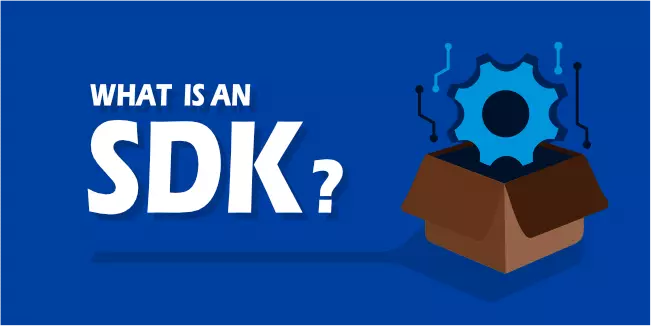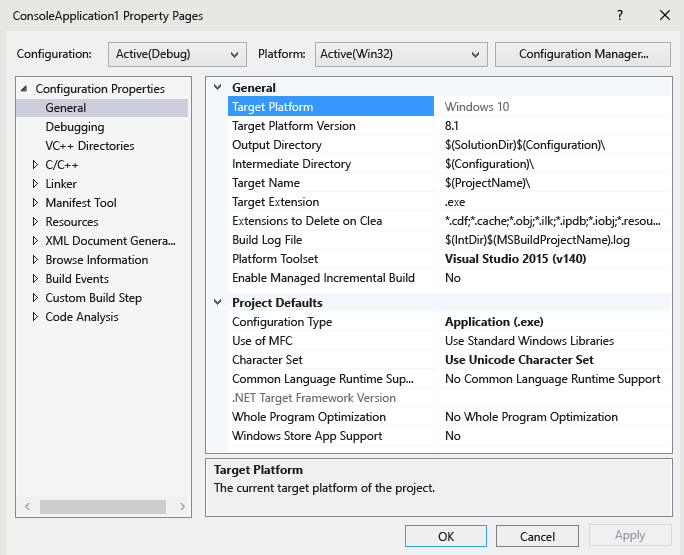
Let’s explore together in this article, brought to you by ONext Digital!
1. An overview of the Windows Software Development Kit.
1.1 A brief overview of the SDK
The documentation within the SDK helps developers understand the structure, rules, and guidelines for software development on that platform. Libraries and tools enable developers to leverage the platform’s functions, APIs, and capabilities to build suitable applications.
With an SDK, developers do not need to rewrite basic functions or delve deeply into the platform’s structure. Instead, they can utilize what is already available to quickly and efficiently develop applications, saving time and effort.
1.2 What is a Window Software Development Kit?
The Windows Software Development Kit (Windows SDK) is a software development toolkit provided by Microsoft, specifically designed to assist developers in building applications that run on the Windows operating system.
This toolkit provides documentation, libraries, compilers, and utilities that help developers create high-quality applications that are compatible with various versions of Windows.
Moreover, the Windows SDK enables developers to interact directly with components of the Windows operating system, such as windows, controls, files, networks, and many other features. By utilizing the tools and documentation within the Windows SDK, developers can harness the power of the Windows API to create a wide range of applications, from desktop and mobile apps to web service applications.
2. The features of the Windows Software Development Kit.
The Windows Software Development Kit (Windows SDK) offers a wide range of features and components to assist developers in creating applications for the Windows operating system. Some of the key features include:
-
Documentation:
The Windows SDK provides comprehensive documentation that guides developers through the process of building Windows applications. This includes guides, tutorials, and reference materials explaining various aspects of Windows development.
-
Libraries and APIs:
The SDK includes a collection of libraries and APIs (Application Programming Interfaces) that allow developers to access and utilize Windows features, services, and functionalities in their applications. These APIs cover areas such as user interface, file system operations, networking, graphics, and more.
-
Development Tools:
The SDK comes with essential development tools, including compilers, debuggers, and other utilities. These tools help developers write, compile, and debug their code effectively.
-
Sample Code:
Windows SDK provides a range of sample code and example projects that demonstrate best practices and showcase how to implement various features. Developers can use these samples as a starting point for their own projects.
-
Resource Editors:
The SDK includes resource editors that enable developers to create and manage visual resources such as icons, dialogs, menus, and accelerators for their applications.
-
Windows Templates:
SDK offers templates for different types of applications (e.g., console, desktop, UWP, etc.) to jump-start the development process.
-
Testing and Debugging:
The SDK provides tools for testing and debugging applications, allowing developers to identify and fix issues in their code efficiently.
-
Compatibility and Versioning:
The SDK ensures that applications developed using it are compatible with various Windows versions. It provides tools to manage version-specific features and ensure a consistent user experience across different Windows releases.
-
Localization and Globalization:
Developers can leverage the SDK’s features for building applications that support multiple languages and regions, making it easier to create globally accessible software.
-
Security:
The Windows SDK includes resources and guidelines for implementing security best practices in applications, helping developers create secure and robust software.
-
Deployment and Packaging:
The SDK assists developers in packaging and deploying their applications for distribution on the Windows Store or other platforms, providing guidance on installation, updates, and app management.
-
Windows App Certification Kit:
This tool within the SDK helps developers test their applications for compliance with Windows Store requirements and guidelines, ensuring a smooth publishing process.
These features collectively empower developers to create diverse and high-quality applications for the Windows platform, ranging from traditional desktop software to modern Universal Windows Platform (UWP) apps and more.
3. Advantages and limitations of the Windows Software Development Kit (SDK)
3.1 Advantages:
- Comprehensive Documentation: The Windows SDK provides extensive and well-documented resources, including APIs, libraries, and sample code, making it easier for developers to understand and implement various functionalities.
- Platform Consistency: The SDK ensures consistency in application development across different Windows versions and devices, enabling developers to create software that works seamlessly on various platforms.
- Rich Set of APIs: Windows SDK offers a wide range of APIs that allow developers to access and utilize Windows features and services, such as graphics, networking, security, and more.
- Development Tools: The SDK includes powerful development tools like compilers, debuggers, and performance analyzers that aid in creating, testing, and optimizing applications.
- Support for Multiple Languages: Developers can choose from various programming languages like C++, C#, and Visual Basic to write applications using the Windows SDK.
- Regular Updates: Microsoft frequently updates the Windows SDK to include new features, bug fixes, and improvements, ensuring that developers can leverage the latest advancements in the Windows ecosystem.
3.2 Limitations:
- Learning Curve: The Windows SDK can have a steep learning curve, especially for newcomers, due to its extensive documentation and complex APIs.
- Platform Dependency: While the SDK helps ensure cross-platform compatibility to some extent, certain features and APIs might be specific to certain Windows versions or editions, limiting the portability of applications.
- Resource Intensive: Developing applications using the SDK might require significant system resources, and certain tools within the SDK could be memory or processor-intensive.
- Restricted to Windows Ecosystem: The Windows SDK is primarily designed for building applications on the Windows operating system, which might limit the ability to create cross-platform software.
- Version Compatibility: Ensuring compatibility across different versions of the Windows SDK and different Windows OS versions can sometimes be challenging.
- Licensing: The terms and conditions of using the Windows SDK can involve licensing agreements that developers need to adhere to, which might have certain restrictions or requirements.
It’s important to note that the advantages and limitations of the Windows SDK can vary depending on the specific development scenario and the needs of the developer and the application being created.
4. Applications of the Windows Software Development Kit (SDK)
The Windows Software Development Kit (SDK) has various important applications in developing applications on the Windows operating system. Here are some examples of the applications of the Windows SDK:
-
Windows Application Development:
The Windows SDK enables developers to create diverse applications on the Windows platform, including desktop applications, Windows Store (UWP) apps, mobile apps, and other types of applications.
-
Game Development:
The Windows SDK provides the necessary tools and libraries to develop games for different versions of Windows, including integrated support for high-end graphics.
-
Multimedia Application Development:
The features and APIs of the Windows SDK allow developers to create multimedia applications such as media players, music players, image and video viewers, and other multimedia-related apps.
-
Enterprise Application Development:
The Windows SDK supports the development of enterprise applications, including management apps, forecasting apps, and resource management apps.
-
Internet of Things (IoT) Application Development:
Tools and documentation are available through the Windows SDK to facilitate the creation of IoT applications for Windows IoT devices, which include embedded computers and other smart devices.
-
Embedded Application Development:
The Windows SDK allows for the development of embedded applications for devices running the Windows operating system, facilitating connectivity and interaction with other systems.
-
Development for Emerging Technologies:
Regular updates to the Windows SDK ensure compatibility with emerging technologies like the Fluent Design interface, gesture interactions, and virtual and augmented reality. These updates empower developers to craft distinctive and contemporary applications.
5. What programming languages are supported by the Windows SDK?
The Windows SDK supports multiple programming languages for Windows platform app development. Here is a more detailed list of some of the languages that are supported by the Windows SDK:
-
C++:
The Windows SDK provides robust C++ support, enabling developers to build potent and efficient applications utilizing the Windows API and associated technologies.
-
C#:
With the Windows SDK, developers can leverage C# to build applications using the .NET framework. This includes creating Windows Forms applications, WPF (Windows Presentation Foundation) applications, and more.
-
Visual Basic .NET (VB.NET):
Similar to C#, VB.NET is another .NET language that is supported by the Windows SDK. It enables developers to create Windows applications with a focus on simplicity and ease of use.
-
F#:
F# is a functional-first programming language that is also supported by the Windows SDK. It offers a unique approach to programming and can be used to build various types of Windows applications.
-
JavaScript:
For developing Windows Store apps using the Windows Runtime, developers can use JavaScript alongside HTML and CSS. This combination is particularly useful for creating modern, cross-platform applications.
-
Python:
Though not a primary Windows development language, the Windows SDK can combine with tools like Python for Windows Extensions (PyWin32) to incorporate Python code into Windows applications.
-
PowerShell:
Despite its primary role in scripting and automation, PowerShell is an additional language compatible with the Windows SDK for executing diverse system tasks and automating processes.
6. Why Does A Developer Need The SDKs?
SDKs play a vital role in developers’ work, offering a ready-made collection of tools, libraries, documentation, and instructions designed to simplify software development for a particular platform, framework, or service. Developers rely on SDKs for a variety of reasons:
One of the key advantages of SDKs is their potential to save significant time and effort for developers. They include complex functionalities, APIs, and services, letting developers focus on core application features without starting from scratch.
SDKs ensure consistency by establishing clear rules and standards set by the platform or service provider. This helps maintain a uniform user experience and minimizes the risk of errors or glitches.
Furthermore, SDKs often provide ready-made APIs for seamless interaction with diverse services like cloud platforms, databases, social media networks, payment gateways, and others. This empowers developers to seamlessly integrate robust features into their applications without delving deep into the underlying technical intricacies.
Comprehensive documentation and illustrative code examples typically accompany SDKs. These resources offer guidance on effective SDK utilization, thereby saving developers time that would otherwise be spent on information retrieval or troubleshooting.
By employing an SDK, developers can expedite the development process by capitalizing on well-tested and optimized code components. This, in turn, accelerates the time-to-market for their applications.
Additionally, SDKs ensure compatibility and up-to-dateness by staying aligned with the latest changes and enhancements in the platforms they cater to. By adopting an SDK, developers can assure that their applications remain compatible and current.
7. Conclusion
In conclusion, From a business and software standpoint, Windows Software Development Kits (SDKs) play a vital role. They are intricately woven into the developmental phases of all software. By utilizing top-tier SDKs, a Software Development Company can gain a distinct competitive advantage in the market. Although SDKs have a longstanding history, their exponential growth as a means to create exceptional software technology is a recent development. They frequently serve as a foundational cornerstone for the strategic success of any IT company.








